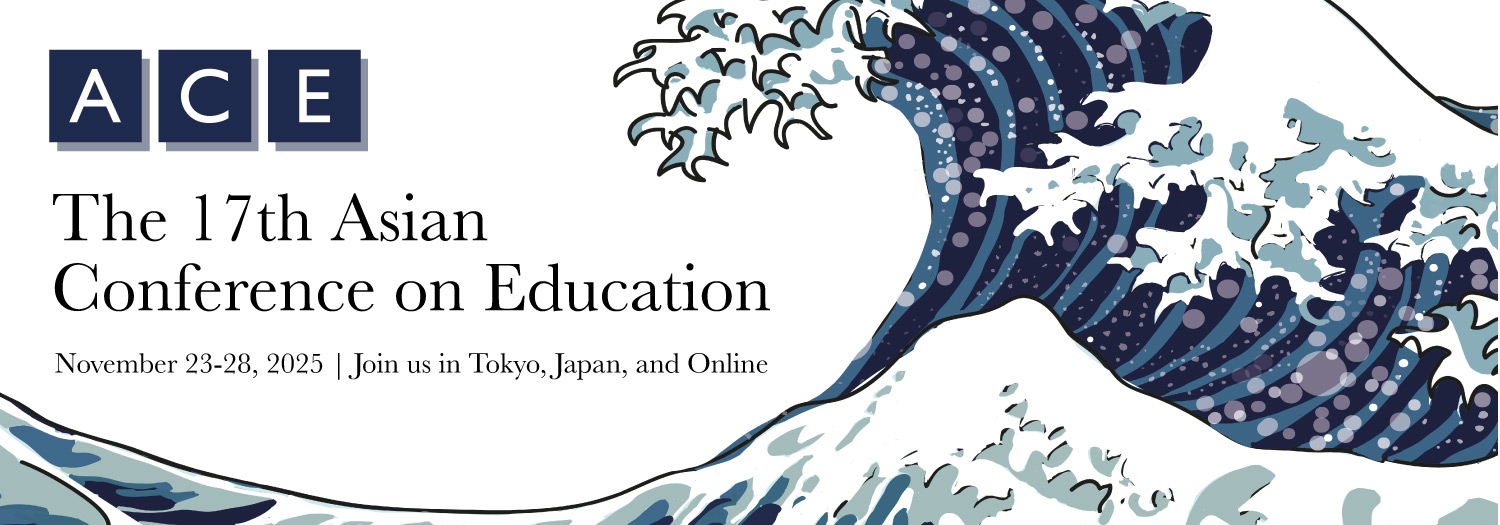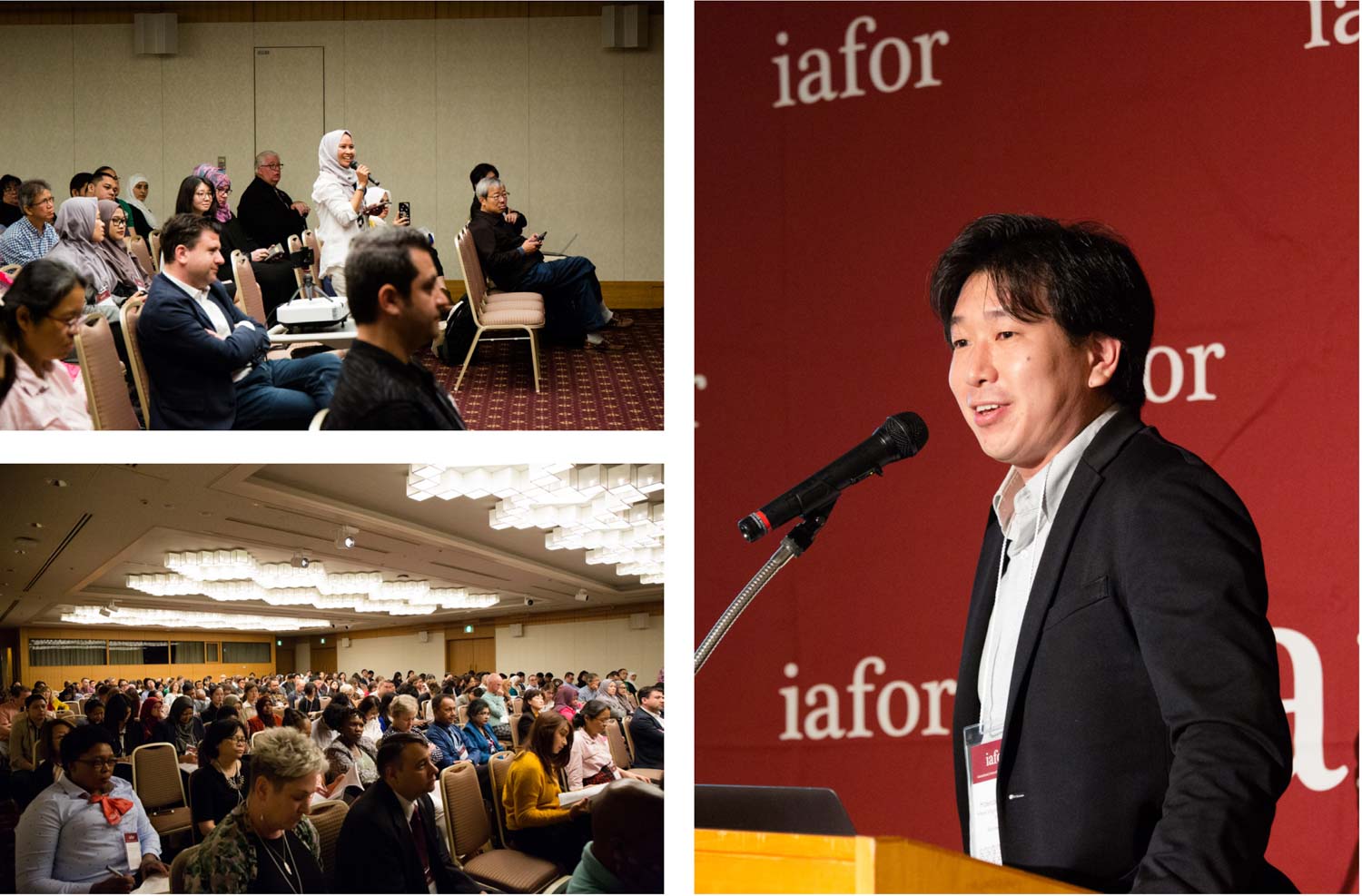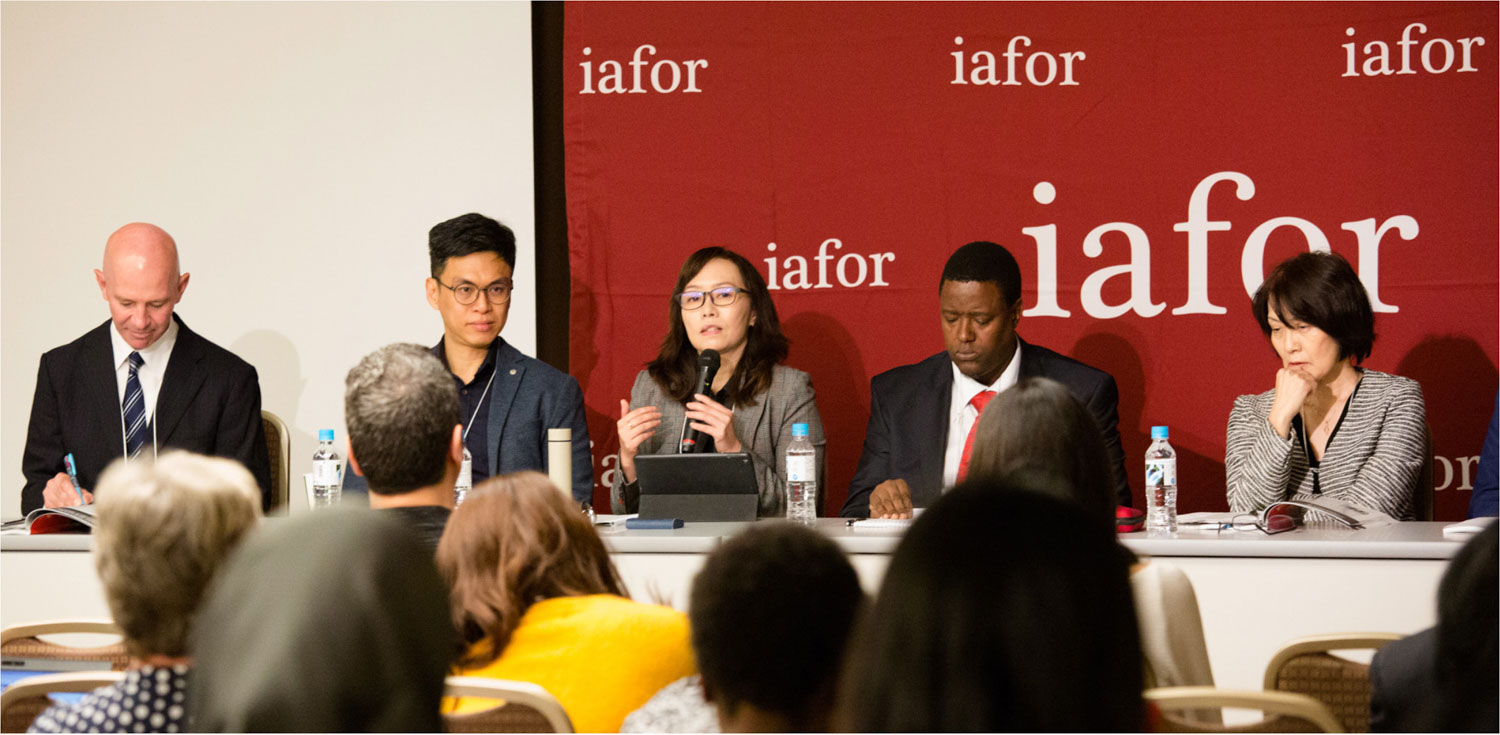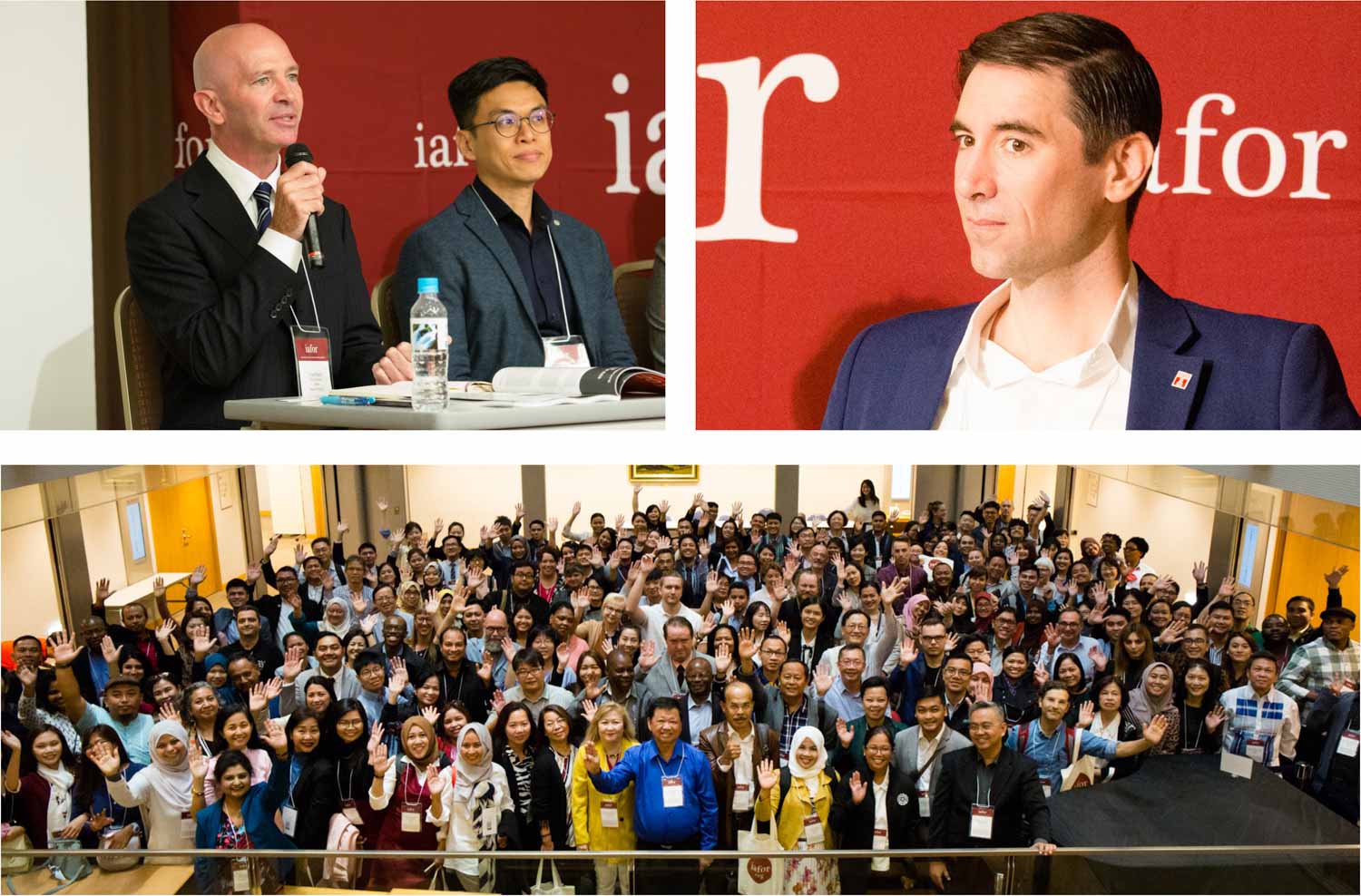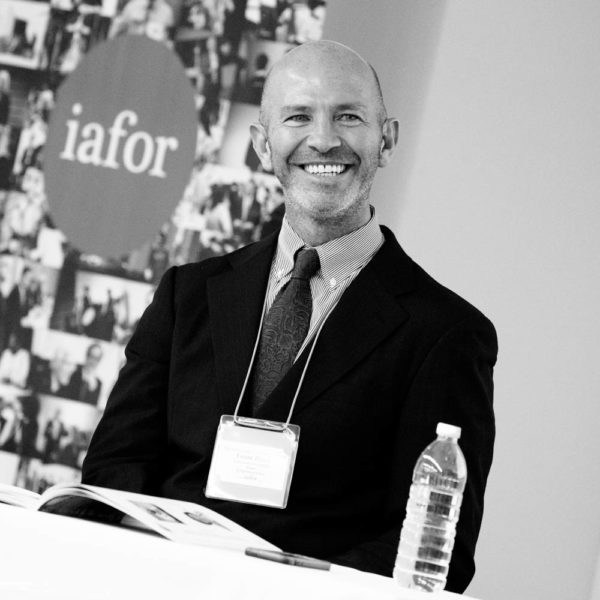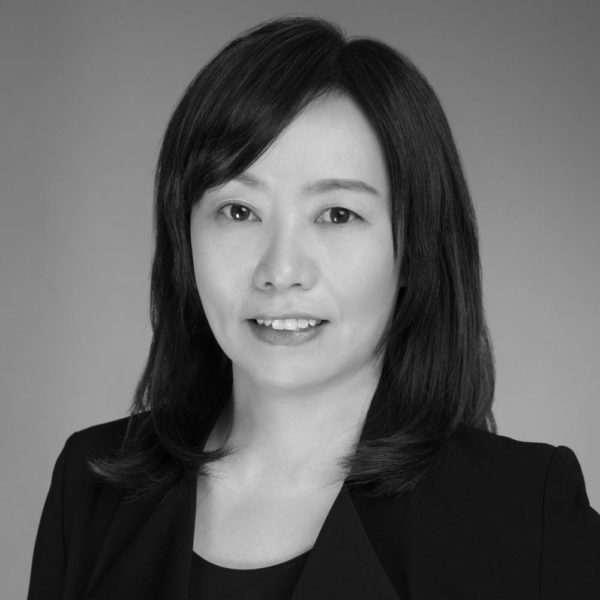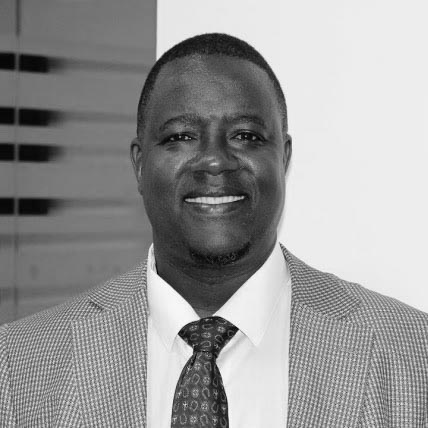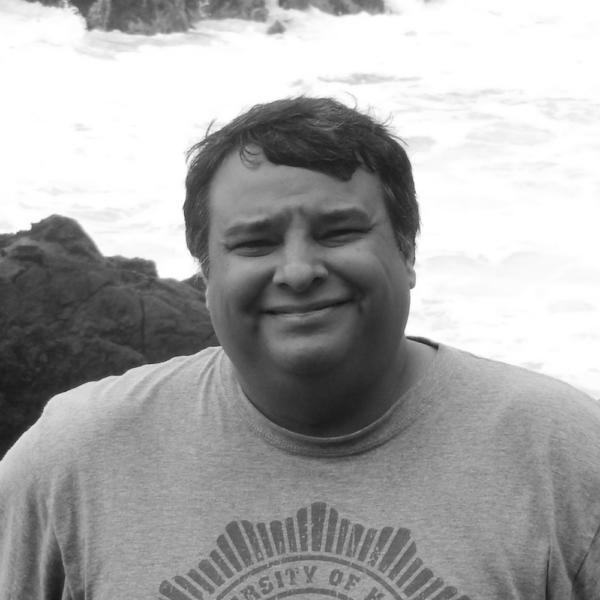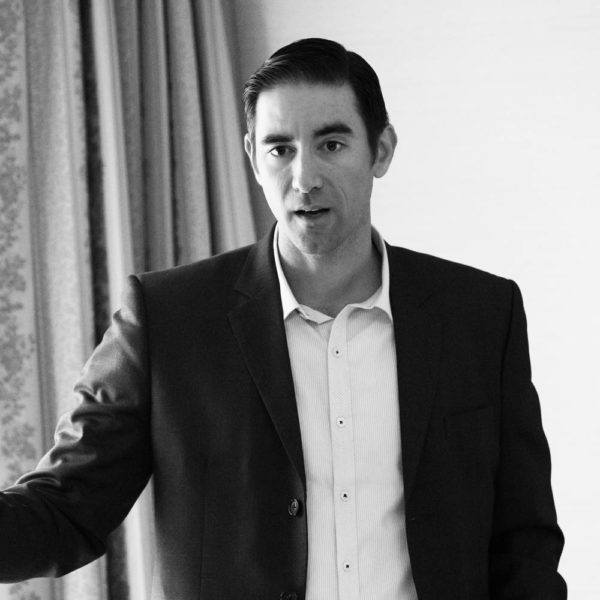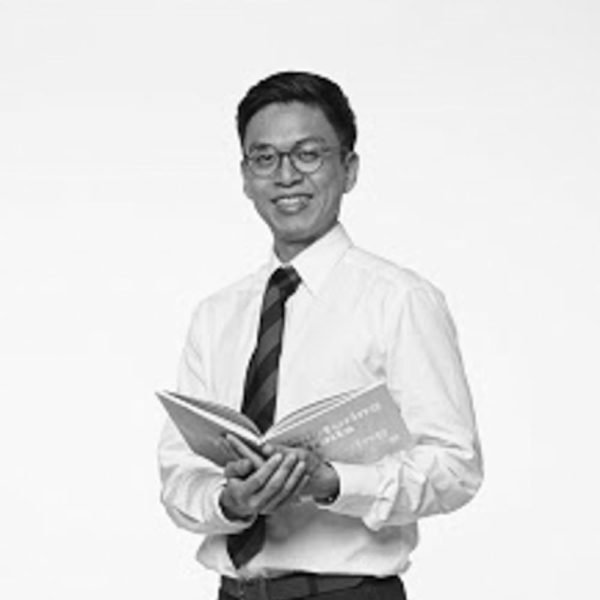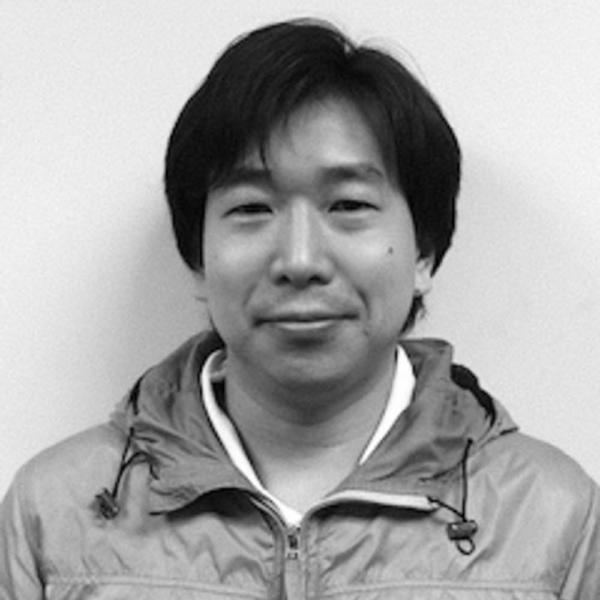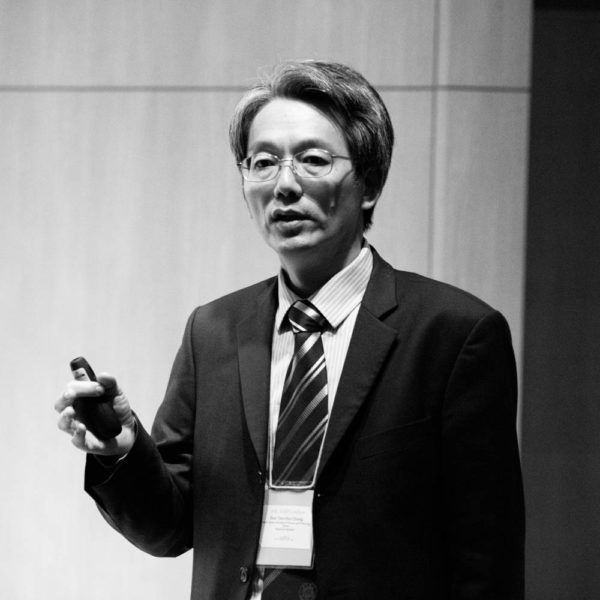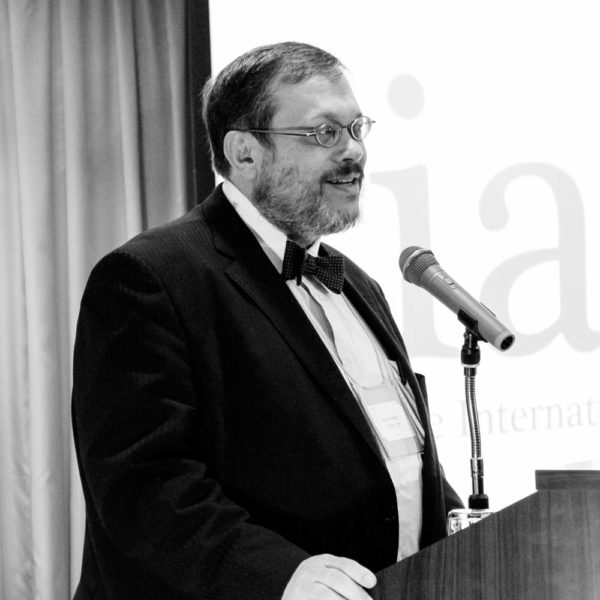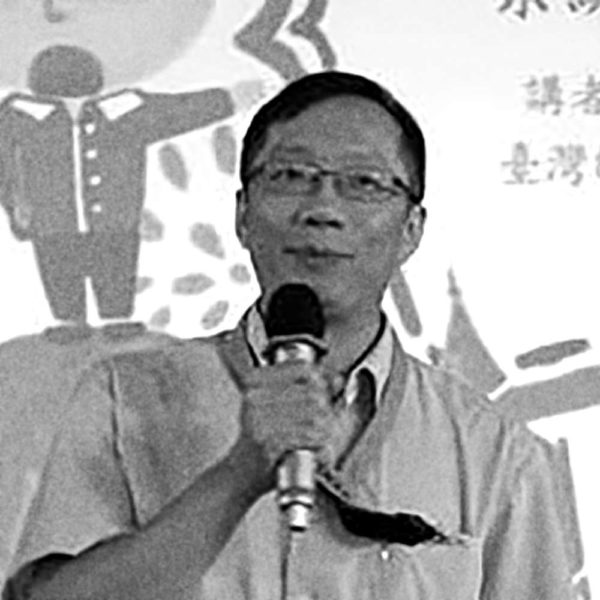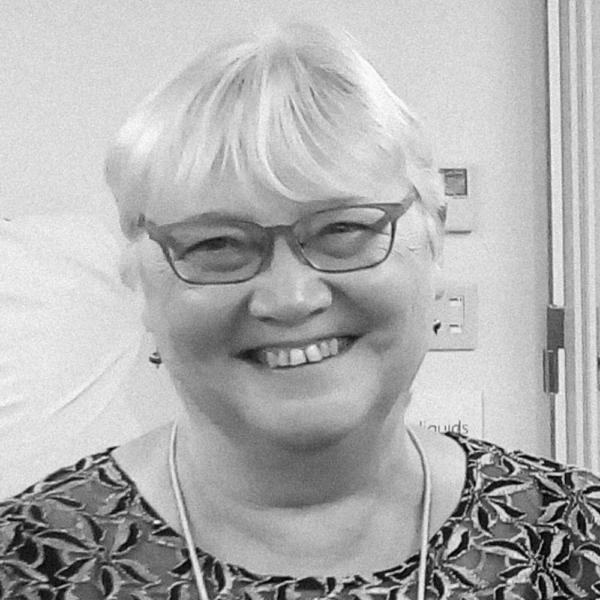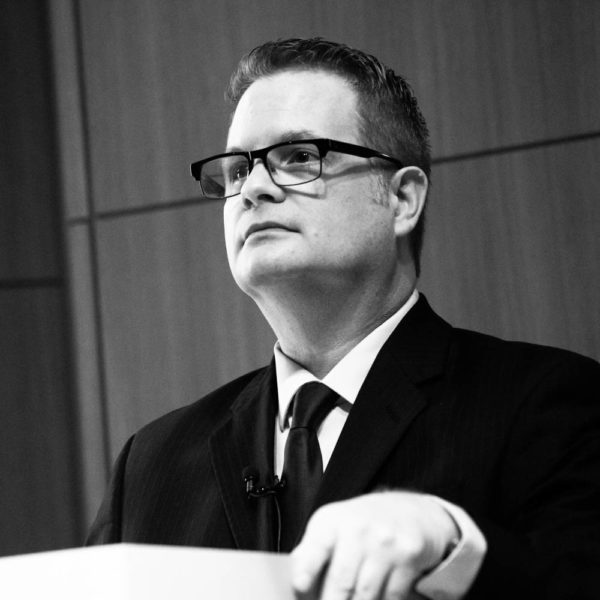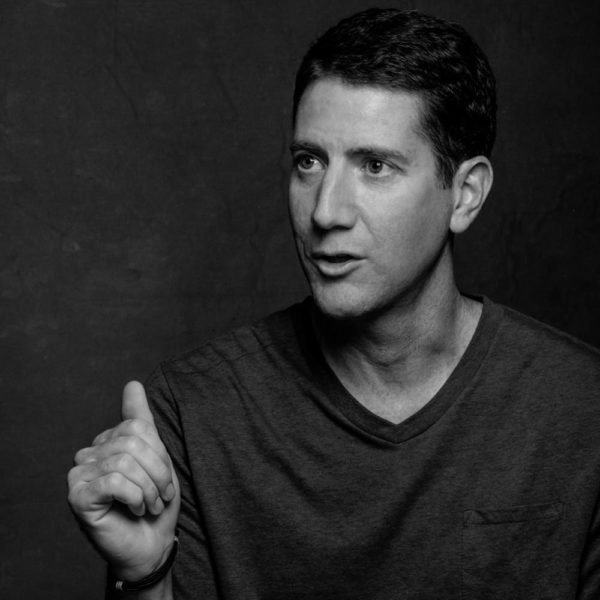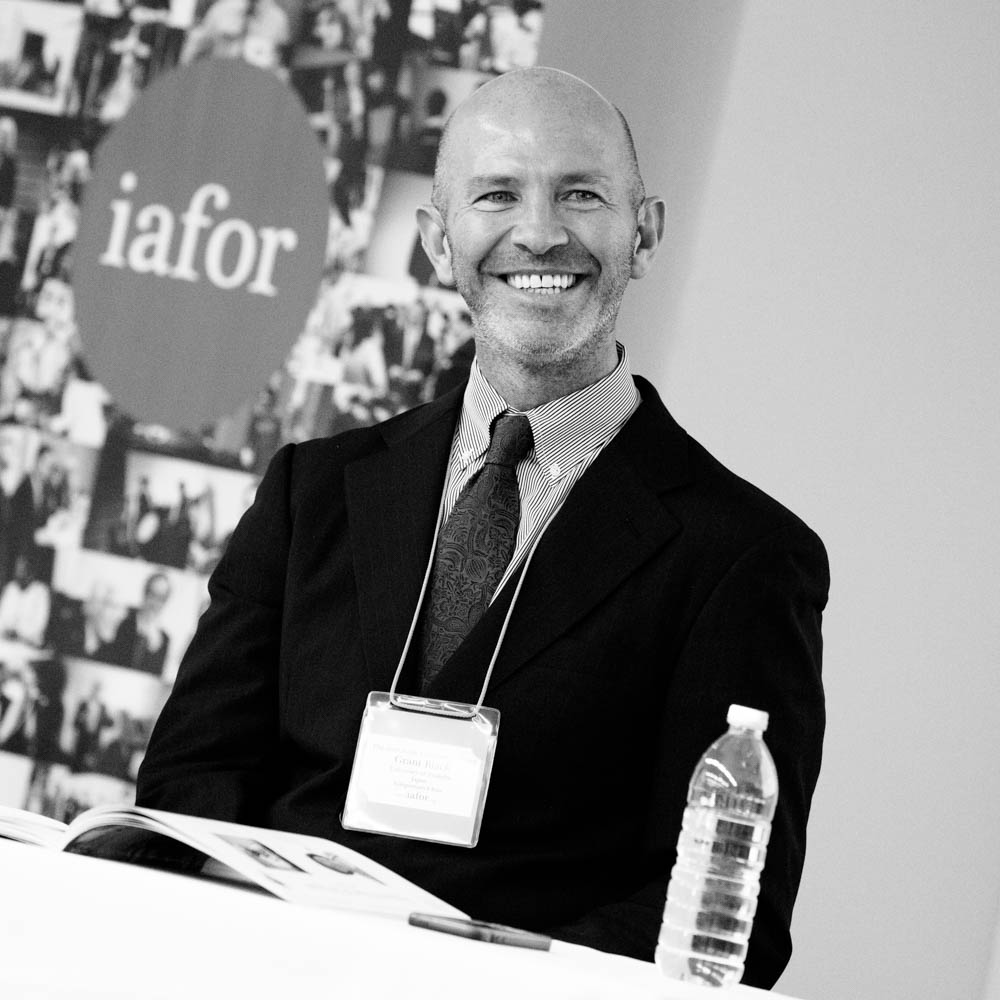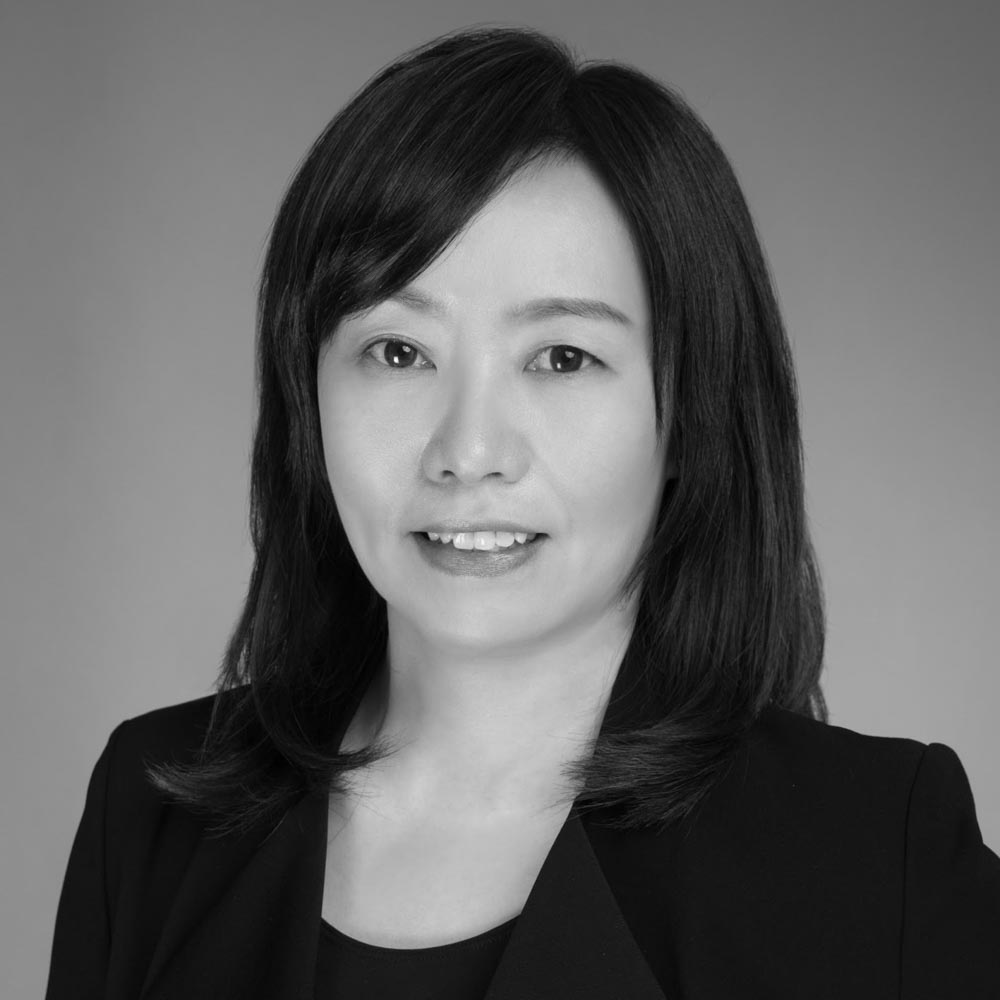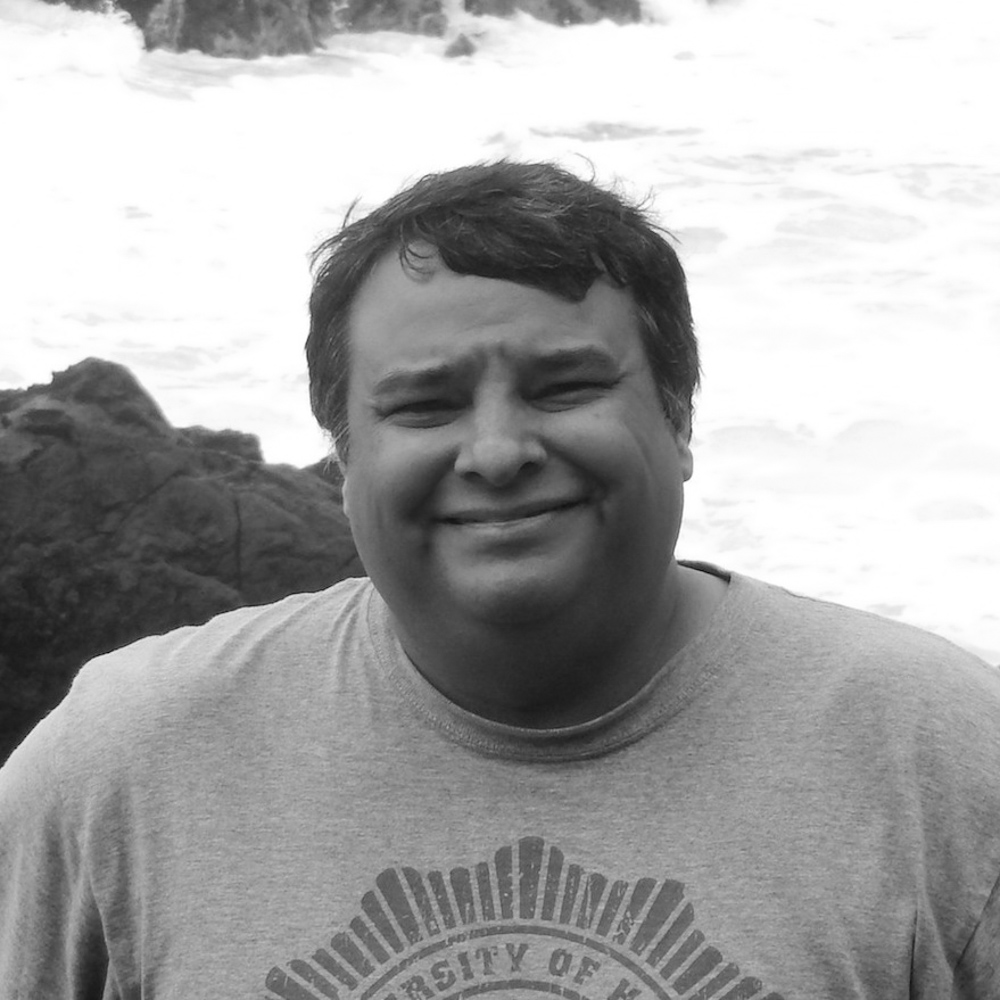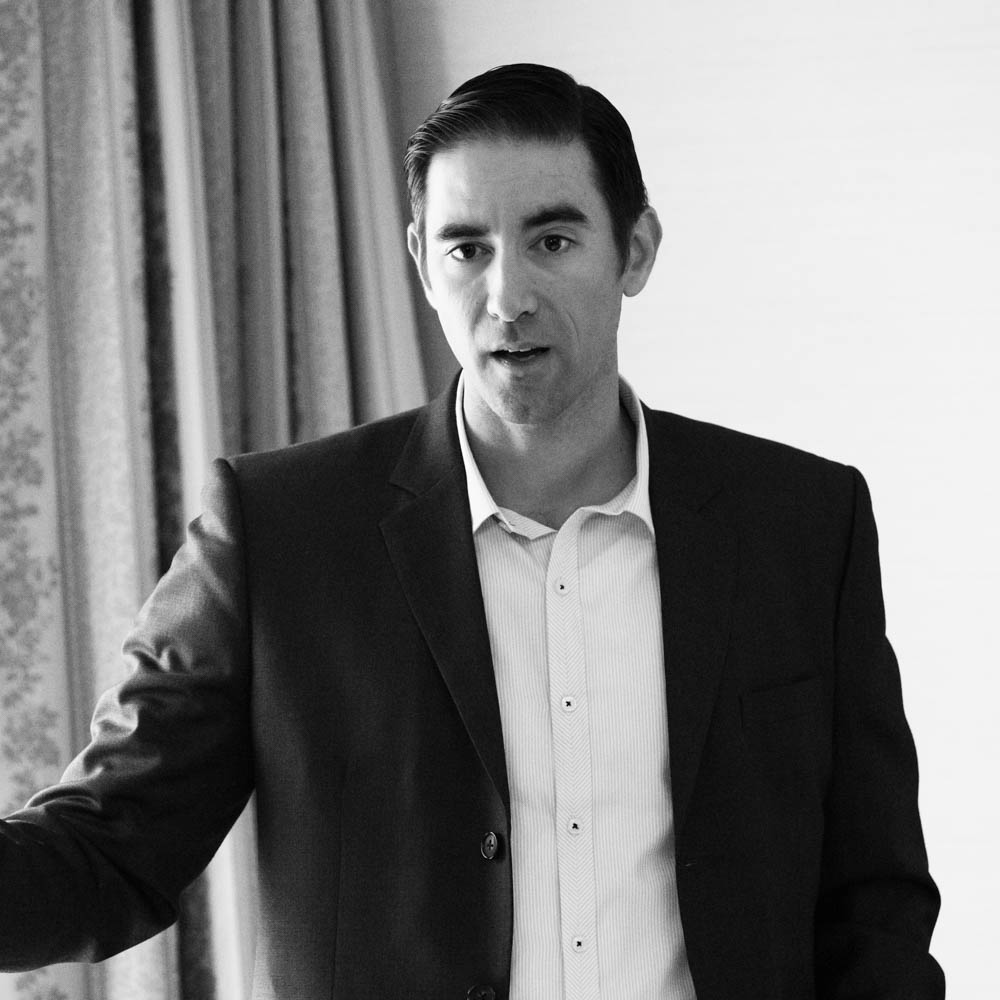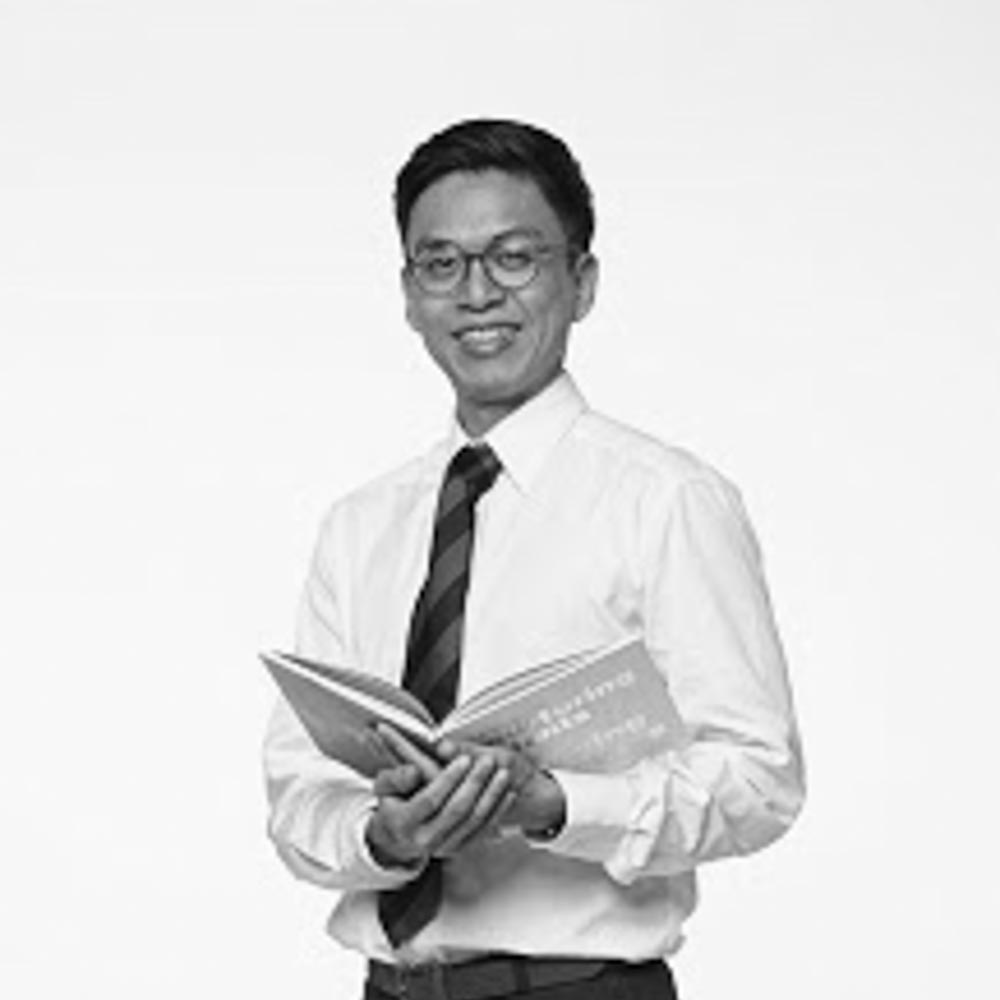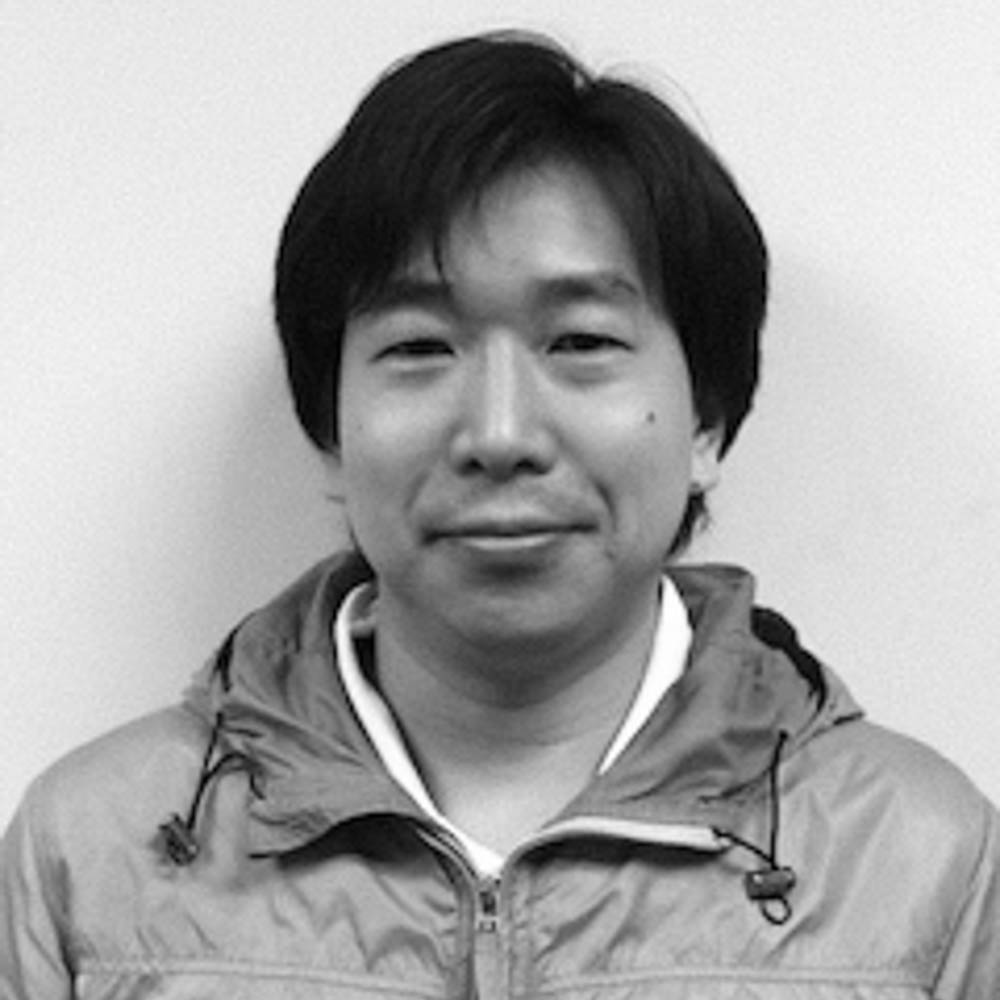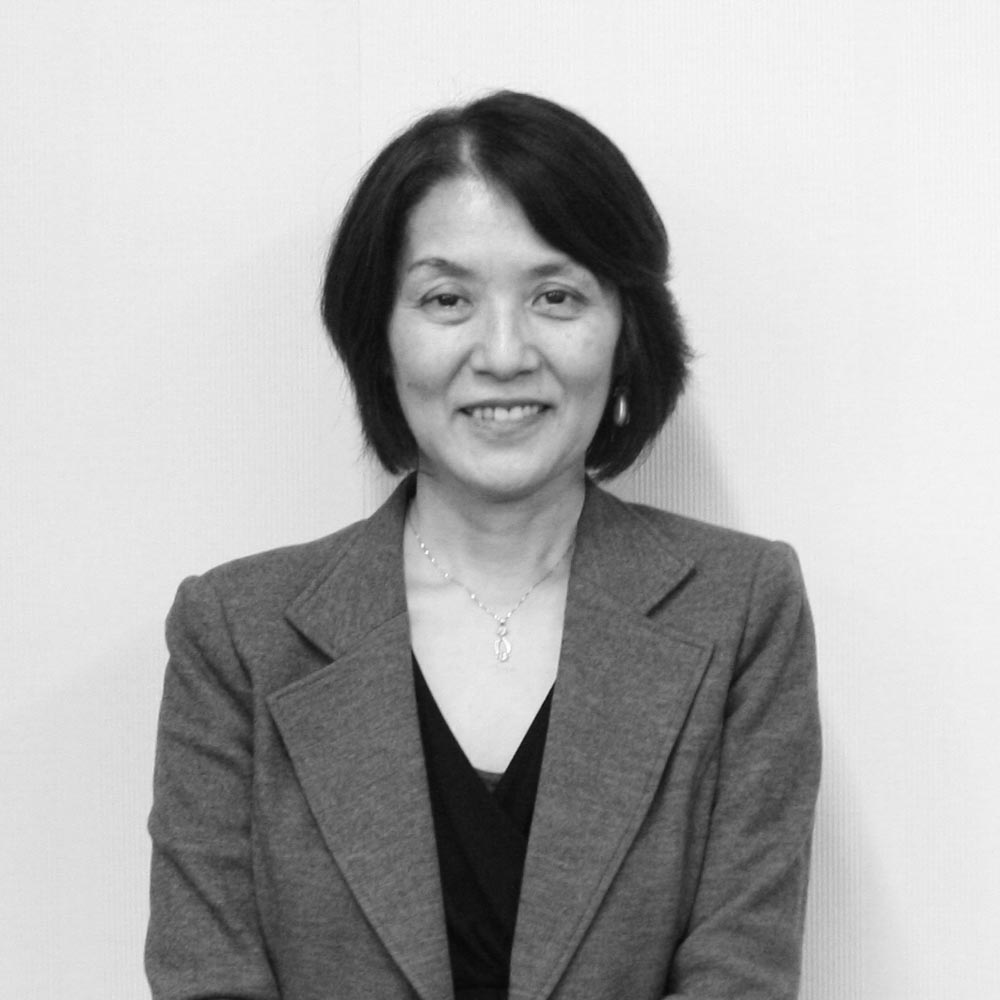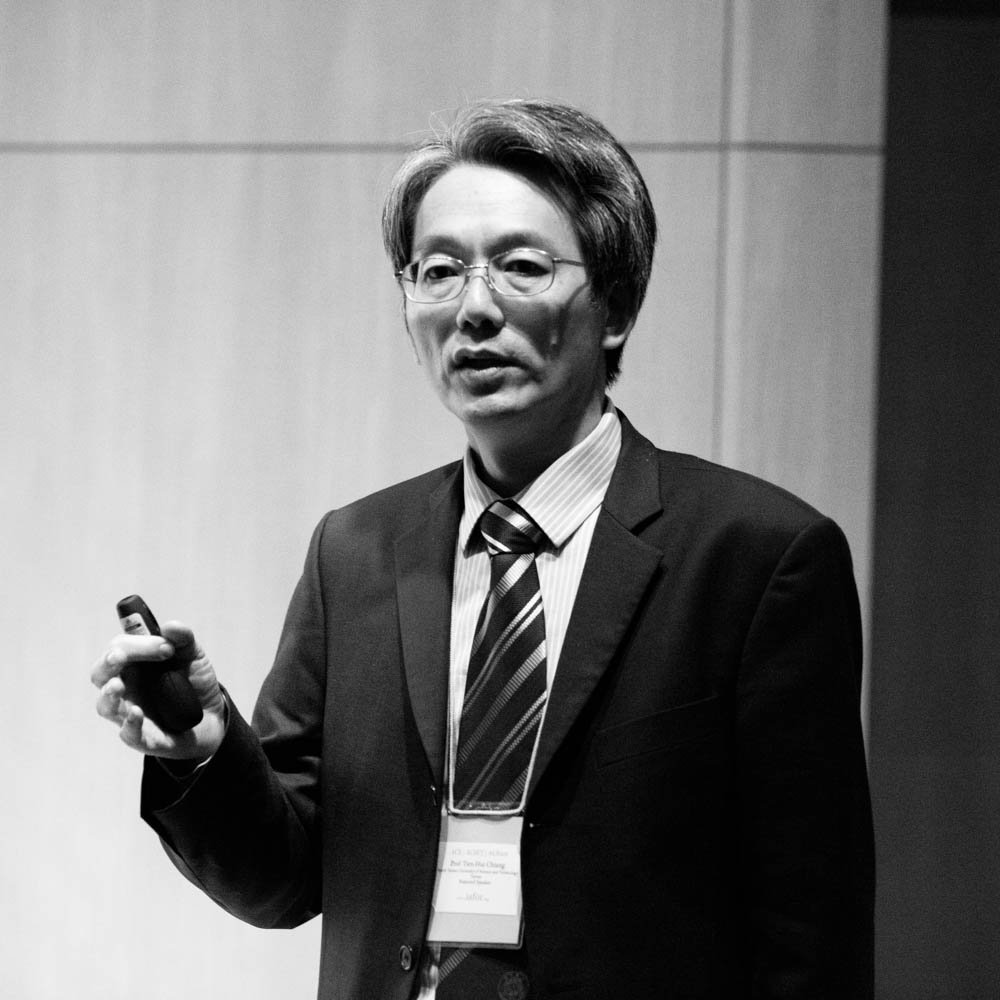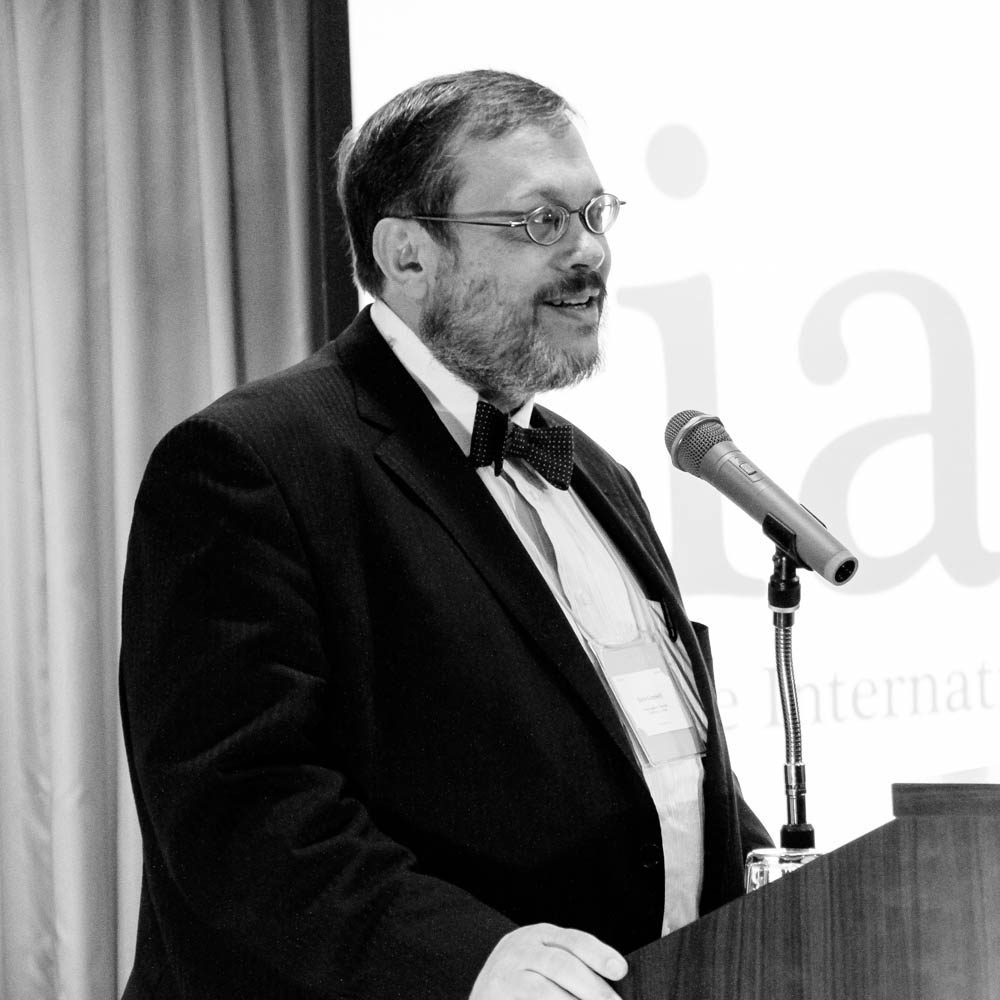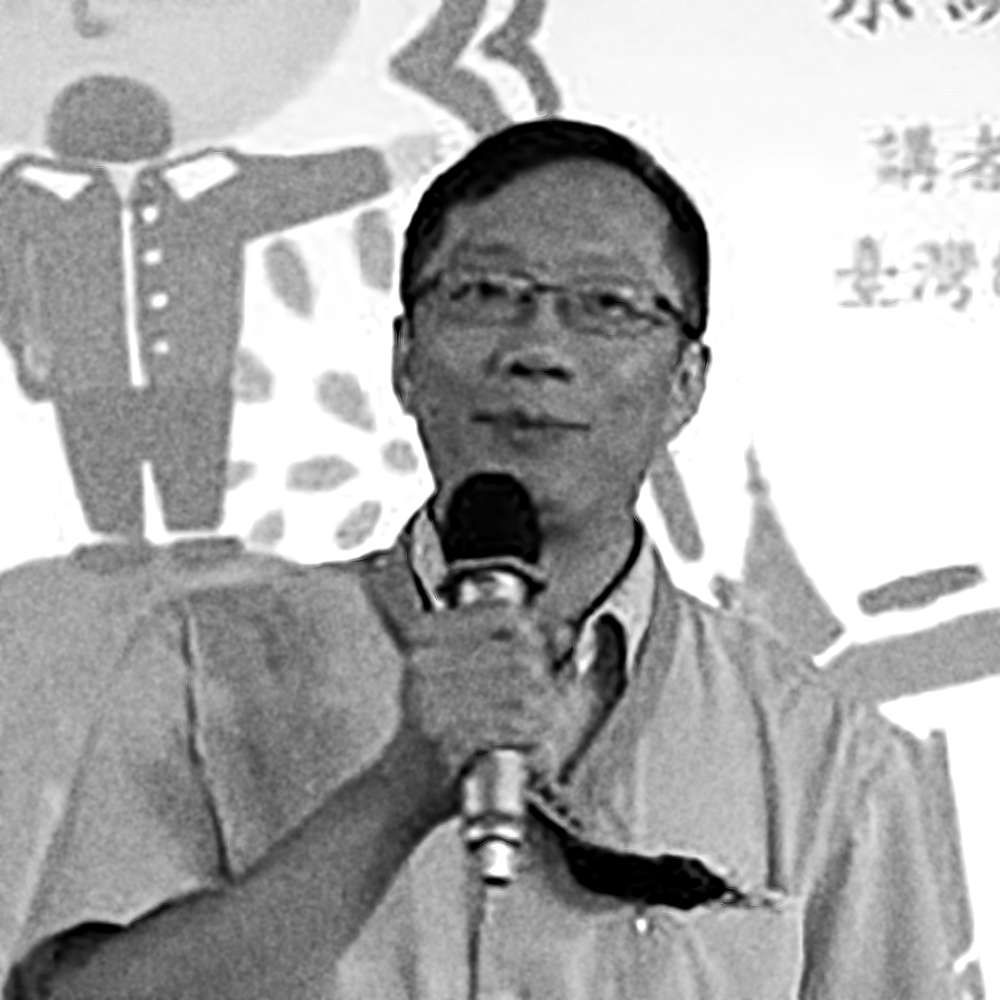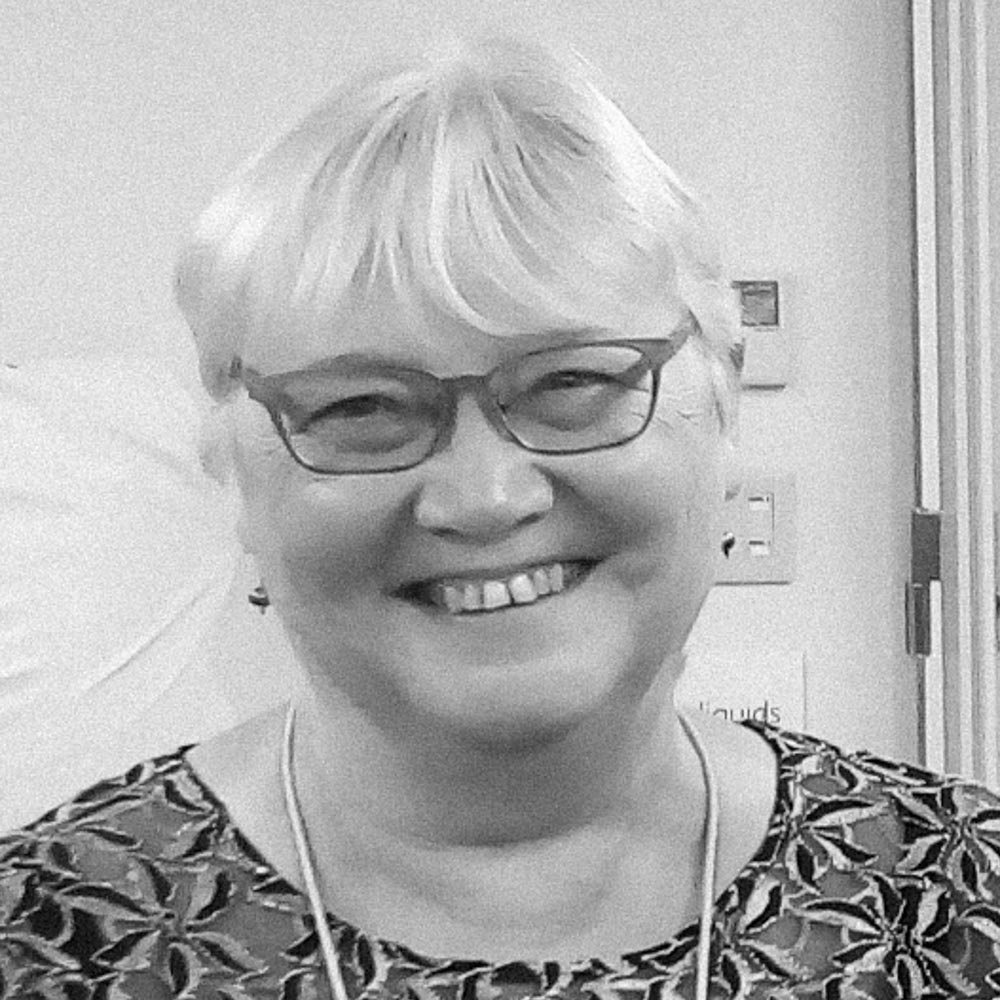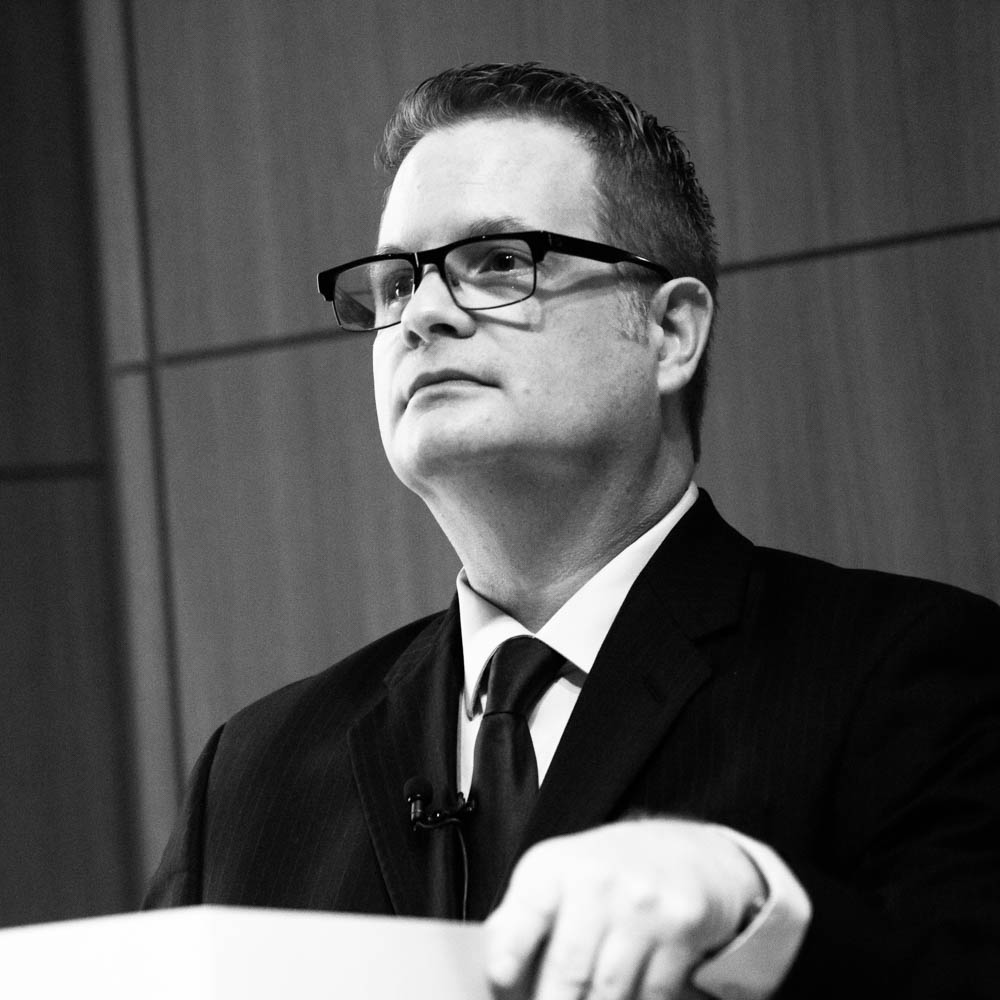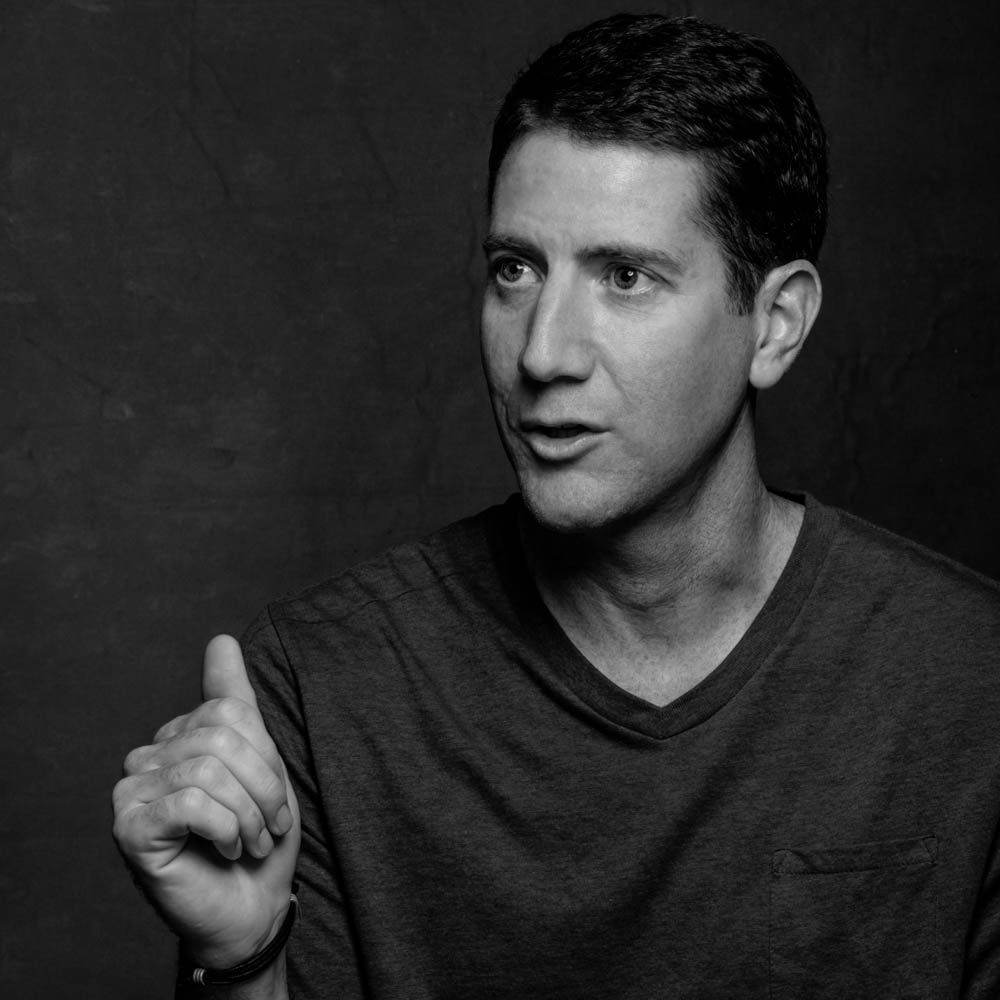“Independence & Interdependence”
October 31 – November 03, 2019 | Toshi Center Hotel, Tokyo, Japan
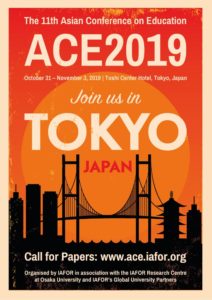
Ever changing technologies offer new ways for us to be independent and autonomous learners, encouraging students to be self-directed and confident in making choices, and enabling and empowering students and teachers to be proactive and tailor content. However, myriad technologies and services make us more dependent on the very things allowing autonomy. How do we help students and teachers alike navigate and curate the vast information available? How do we encourage individual growth while also underlining the importance of belonging and of the reciprocal responsibilities and privileges of education? How do we help students build the skills and attitudes necessary for positive engagement in distributed, globalised communities that so often lead to polarisation and alienation instead? How do we educate with independence and interdependence in mind?
ACE2019 Photo Report
Above left: Dr Yvonne Masters, Editor-in-Chief of the IAFOR Journal of Education, provides a pre-conference workshop on getting published for a packed room of interested scholars. Above right: Professor Michael Menchaca from the University of Hawaii at Manoa (USA) draws on his experience of coordinating the online education system for the University of Hawai’i as he delivers his Keynote Presentation on technology in education, titled “Plenary Learning: Harnessing Technology to Support Independence and Interdependence to Maximize Learning for All”.
Above, clockwise from top left: Audience members ask questions throughout the plenary sessions, reflecting the engaging nature of the topics and the atmosphere of discussion and collaboration felt all through the conference. Professor Hidenobu Sumioka, from the Hiroshi Ishiguro Laboratory, ATR, (Japan) discusses his cutting edge work with robotics and artificial intelligence and how these new technologies can benefit education in the future. A crowded room listens with interest as plenary speakers share their innovative ideas.
Above: During the Keynote Panel Presentation titled “Academic Governance / Management / Administration in Higher Education in Asia”, Dr Lisa Lam, from Hong Kong Baptist University (Hong Kong) offers her opening comments while the other panellists, (left to right) Dr Grant Black of Chuo University (Japan), Dr Wei Shin Leong, of National Institute of Education (Singapore), Dr Tsediso Michael Makoelle, of Nazarbayev University (Kazakhstan), Dr Reiko Yamada, of Doshisha University (Japan), and (not pictured) Dr Justin Sanders, of Temple University (Japan) take notes.
Above, clockwise from top left: Dr Grant Black moderates the Keynote Panel, guiding the conversation through the many issues surrounding academic administration. Dr Justin Sanders listens to questions from the audience during the Keynote Panel. Delegates pose for a group photo during a break between plenary sessions at the Toshi Center Hotel, in Tokyo, where ACE2019 welcomed almost 600 people from around the world for an exciting, engaging, and productive conference.
Speakers
-
Grant BlackBlack Inc. Consulting, Japan
-
Lisa LamHong Kong Baptist University, Hong Kong SAR
-
Tsediso Michael MakoelleNazarbayev University, Kazakhstan
-
Michael MenchacaUniversity of Hawaii at Manoa, USA
-
Justin SandersTemple University, Japan Campus
-
Leong Wei ShinNational Institute of Education-Nanyang Technological University, Singapore
-
Hidenobu SumiokaHiroshi Ishiguro Laboratory, ATR, Japan
-
Reiko YamadaDoshisha University, Japan
Programme
-
Emerging Education with Social RobotsKeynote Presentation: Hidenobu Sumioka
-
Plenary Learning: Harnessing Technology to Support Independence and Interdependence to Maximize Learning for AllFeatured Presentation: Michael Menchaca
-
Academic Governance / Management / Administration in Higher Education in AsiaFeatured Panel Presentation: Grant Black, Lisa Lam, Tsediso Michael Makoelle, Leong Wei Shin, Reiko Yamada & Justin Sanders
Organising Committee
The Conference Programme Committee is composed of distinguished academics who are experts in their fields. Conference Programme Committee members may also be members of IAFOR's International Academic Board. The Organising Committee is responsible for nominating and vetting Keynote and Featured Speakers; developing the conference programme, including special workshops, panels, targeted sessions, and so forth; event outreach and promotion; recommending and attracting future Conference Programme Committee members; working with IAFOR to select PhD students and early career academics for IAFOR-funded grants and scholarships; and overseeing the reviewing of abstracts submitted to the conference.
-
Tien-Hui ChiangZhengzhou University, China
-
Steve CornwellThe International Academic Forum (IAFOR) & Osaka Jogakuin University, Japan
-
Joseph HaldaneThe International Academic Forum (IAFOR), Japan
-
Tzu-Bin LinNational Taiwan Normal University, Taiwan
-
Yvonne MastersExecutive Editor of the IAFOR Journal of Education (Scopus) & Independent Researcher, Australia
-
José McClanahanCreighton University, USA
-
Justin SandersTemple University, Japan Campus
-
Zachary WalkerInstitute of Education, University College London, UK
ACE2019 Review Committee
- Professor Cynthia Abella, University of the East, Philippines
- Dr Nancy Mcbride Arrington, Georgia Southern University, United States
- Dr Annette Bradford, Meiji University, Japan
- Professor Li-Yueh Chen, Weixin Shengjiao College, Taiwan
- Dr Pin-Ju Chen, Saint Mary's Junior College of Medicine, Nursing & Management, Taiwan
- Professor Chingya Chiu, Chang Jung Christian University, Taiwan
- Professor Dary Dacanay, St. Patrick School, Philippines
- Dr Susi Darihastining, STKIP PGRI Jombang, Indonesia
- Dr Minako Inoue, Health Science University, Japan
- Dr Charu Jain, National Council of Applied Economic Research, India
- Dr Eva Julianti P, Universitas Negeri Jakarta, Indonesia
- Dr Norman Tiong Seng Lee, Singapore University of Technology and Design, Singapore
- Dr Siu-Lun Lee, The Chinese University of Hong Kong, Hong Kong
- Dr Ruey-Fa Lin, FengChia University, Taiwan
- Dr Shu-Wen Lin, Sojo University, Japan
- Dr Sonal Mobar Roy, National Institute of Rural Development and Panchayati Raj, India
- Dr Jasvir Kaur Nachatar Singh, La Trobe University, Australia
- Dr Non Naprathansuk, Maejo University, Thailand
- Dr Nhung Nguyen, Deakin University, Australia
- Dr Marilyn Obod, Our Lady of Fatima University, Philippines
- Dr Christopher Estibar Olipas, Olm Institute and Skills Training Center for Allied Courses, Inc., Philippines
- Dr Elleine Rose Oliva, University of Mindanao, Philippines
- Dr Elymar Pascual, Talangan Integrated National High School, Philippines
- Dr Hansel Hope Perez, Our Lady of Fatima University, Philippines
- Dr Metee Pigultong, Rajamangala University of Technology Thanyaburi (RMUTT), Thailand
- Dr Nitta Roonkaseam, Phranakhon Rajabhat University, Thailand
- Dr Carla Rudder, Rabdan Academy, United Arab Emirates
- Dr Nilda San Miguel, San Juan Elementary School, Philippines
- Dr Vilma Sangian, Tapia Elementary School, Montevista District, Division of Compostela Valley, Philippines
- Dr Aisha Sayidina, American University of Sharjah, United Arab Emirates
- Dr Diana Po Lan Sham, Hong Kong Chinese Institute of Engineers, Hong Kong
- Professor Gregorio Sismondo, The National Teachers College, Philippines
- Dr Kenneth Tan, Singapore Management University, Singapore
- Dr Ko Wai Tang, The Open University of Hong Kong, Hong Kong
- Professor Jane Teng, Universiti Pendidikan Sultan Idris Malaysia, Malaysia
- Dr Sonia Timog, Paco Catholic School, Philippines
- Dr Elisa Valdez, New Era University, Philippines
- Dr Jessie Ming Sin Wong, The Open University of Hong Kong, Hong Kong
- Dr Tina Wong, Hong Kong Polytechnic University, Hong Kong
